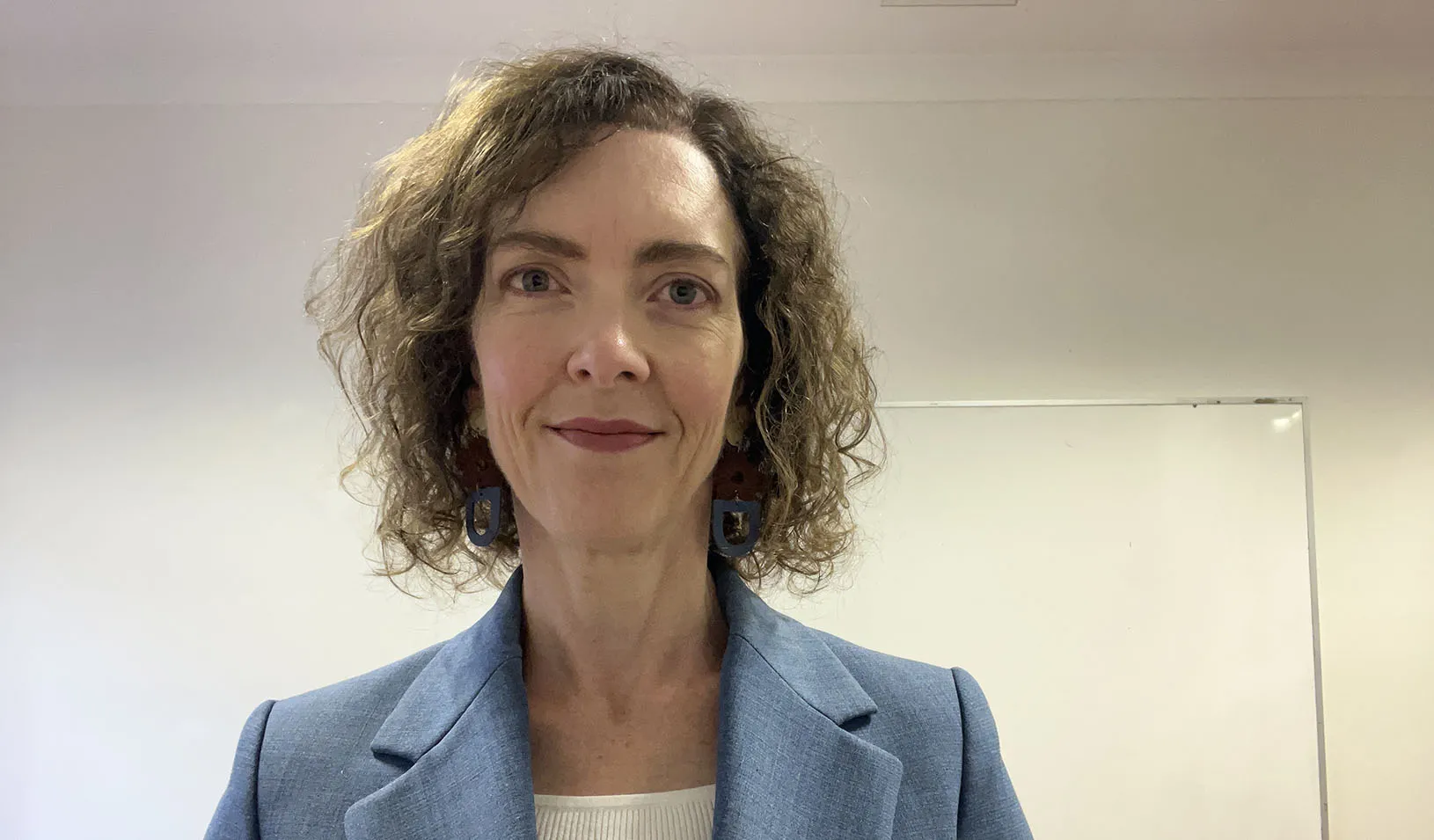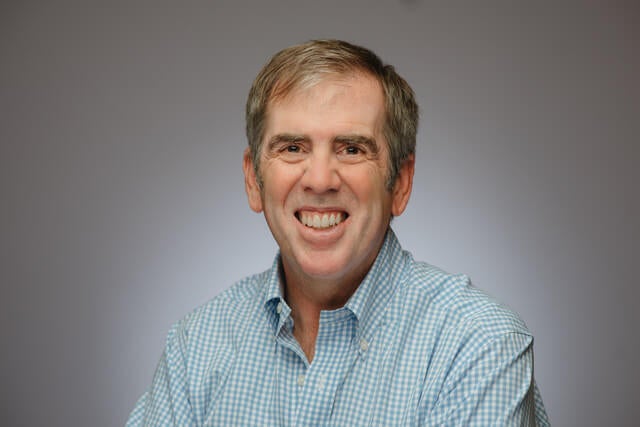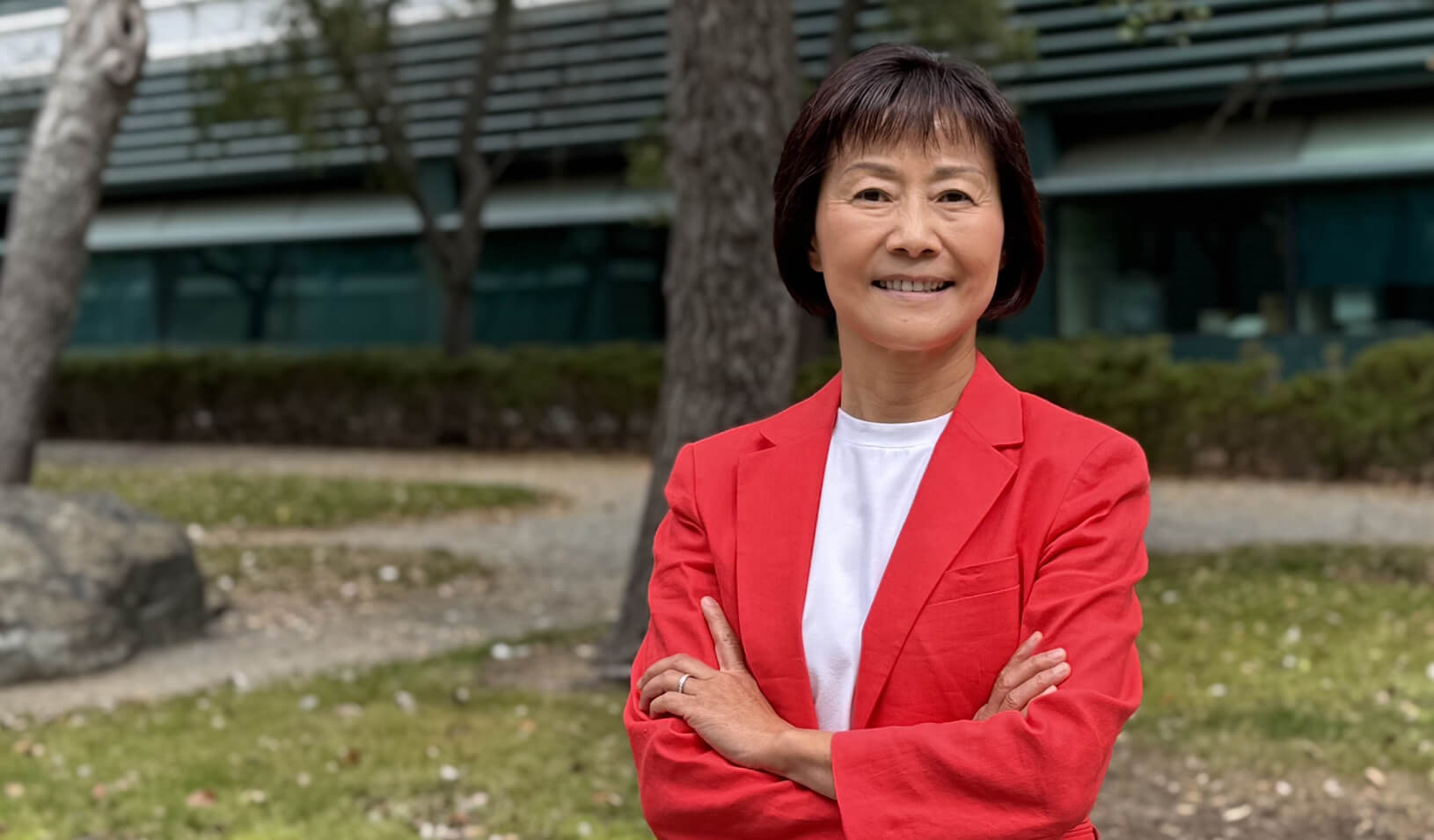Executive Finds Benefit in Leading with Compassion – For Herself and Others
The Interpersonal Dynamics for High-Performance Executives program gave corporate attorney Carolyn Baker skills and confidence to grow as a transformational leader.
April 05, 2024

Carolyn Baker of Melbourne, Australia, was the first lawyer in her family — though she started out working in an accounting firm. Her professional journey would take more than one unexpected turn.
“I haven’t followed the typical career path for a lawyer,” she says. “That’s probably because of my curiosity. I like to try different things and work in different industries.”
Carolyn built her career as a general counsel, corporate services, and customer operations leader in industries serving the the city of Melbourne’s transport infrastructure. She has held legal and executive positions with the Port of Melbourne and ConnectEast, the private operator of EastLink, a major toll highway.
Over the years, she expanded her role to work strategically on organizational transformation — primarily in workforce planning and diversity and inclusion projects. She also mentored other women striving to gain traction in the transportation industry.
It’s the interpersonal relationships, Carolyn says, that are so important to the day-to-day operations and success of any organization. They can also be complex and challenging.
Carolyn wanted to grow as a strategic leader who could motivate others to work efficiently and effectively together — to share ideas, engage in constructive dialogue, and achieve positive results.
“I wanted to learn more about managing interactions with people of all levels, and improve my confidence and performance,” Carolyn says. She had begun to explore the role of compassion in leadership and wanted to learn more. This desire led her to the Stanford Graduate School of Business (GSB).
Carolyn chose the Stanford Executive Education Interpersonal Dynamics for High-Performance Executives (IPD) program to gain the skills needed to help her grow and foster change.
“It was an opportunity for me to learn some tools to connect with people in the organization and the industry, and to address personal barriers that were holding me back,” she says.
Building Better Working Relationships
Carolyn attended the intensive one-week, on-campus IPD program, learning alongside other executives from a variety of industries.
“My world was small and I wanted it to be bigger,” she recalls. “The idea of studying overseas and meeting others with different experiences was very appealing.”
The IPD curriculum covers the power of inquiry and feedback, what it means to be an effective and influential leader, and the interrelationships of vulnerability, authenticity, connection, and influence. “The sophistication of the content surprised me the most,” she says.
Carolyn enjoyed the program’s immersive, experiential learning opportunities, particularly its “T-groups” — where small, intimate groups of 12 participants experience personalized facilitation from Stanford GSB faculty and executive coaches. Participants attend general sessions covering concepts and theories in the morning, then work through the material with their T-groups in the afternoon.
Sessions covering how to lead with self-compassion and empathy hit home for Carolyn. “This experience touched me deeply and had a lasting impact on me as an individual and an executive,” she says.
Carolyn says the transformative experience was well worth the trip across the globe.
“The T-groups experience is quite profound, working with a group of senior executives from completely different industries, backgrounds, and cultures,” she says. “We all dealt with the same issues. It’s remarkable how close you become to people when you’re in that situation.”
A New Turn in the Road
Carolyn came away from the program more self-assured, with the tools to manage work relationships for more positive outcomes, and serve as a role model for other women in transport infrastructure.
“I was used to coming to work with armor on, not sharing how I was feeling,” she says. “That changed quite a lot after the program. It helped me connect with people to show my vulnerability and humanity.”
Two years after her Stanford experience in IPD, Carolyn shifted gears and took on a new challenge.
She is now Chief Legal Officer for Northern Health, a rapidly expanding public health service with a major infrastructure development program. The IPD program, she says, has helped her rise to the challenges of being a strategic leader within a medical environment, which is new to her. “I’m now very comfortable with differences of opinion and professional styles,” she says.
Carolyn continues to mentor younger women professionals, sharing what she’s learned about influence and relationships — in hopes of giving them the confidence to achieve their own goals. She also volunteers on the governance subcommittee for the Melbourne Symphony Orchestra board of directors.
“The IPD program was a level above any postgraduate work I’d done here in Australia,” she says. “I gained confidence, skills, and I came back feeling like a different person.”


